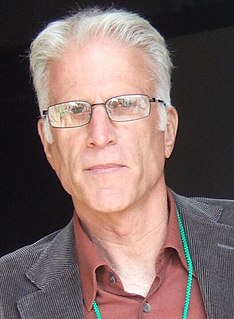A Quote by John Gokongwei
We have to look for opportunities if we're going to survive the next 50 years. We can't depend on what we have now.
Quote Topics
Related Quotes
Without investments in research and science that will create the next Apple, create the next new innovation that will sell products around the world, we will lose. If we're not training engineers to make sure that they are equipped here in this country, then companies won't come here. Those investments are what's going to help to make sure that we continue to lead this world economy not just next year, but 10 years from now, 50 years from now, a hundred years from now.
There are people that tell you we gotta colonize Mars in the next 50 years if we're to survive as a human race. It's absolute stupidity. All it does is scare people - particularly young, impressionable minds who already think there isn't gonna be a planet in 30 years. Now they're thinking, since there isn't gonna be a planet, "If we don't get to Mars in 30 years, I'm gonna die."
[Facebook] is shaping a broader web. If you look back for the past five or seven years, the story about social networking has really been about getting people connected... But if you look forward for the next five years, I think that the story people are going to remember five years from now isn't how this one site was built; it is how every single service that you use is now going to be better with your friends.
So when people say how horrible it is that Donald Trump is president, well, yeah, but we've faced a lot worse than this and our country went on to go from the world of 'Mad Men' to the world it is today, and that's what's going to happen now. That's what's going to happen in the next 50 years. We're going to be fine.
The biggest breakthrough in the next 50 years will be the discovery of extraterrestrial life. We have been searching for it for 50 years and found nothing. That proves life is rarer than we hoped, but does not prove that the universe is lifeless. We are only now developing the tools to make our searches efficient and far-reaching, as optical and radio detection and data processing move forward.
I feel that I'm in on the ground floor of something that human beings will be concentrating on for the next 1,000 years-if we don't destroy ourselves in the meantime. It's possible that 50 years from now we're going to end up out of this solar system, batting around the universe, at least within our galaxy, investigating other stars and other systems.
When we gaze at a star in the Milky Way which is 50,000 light-years away from our sun, we are looking back 50,000 years in time." "The idea is much too big for my little head." "The only way we can look out into space, then, is to look back in time. We can never know what the universe is like now. We only know what it was like then. When we look up at a star that is thousands of light-years away, we are really traveling thousands of years back in the history of space.
The biggest danger we face is overfishing. We literally could fish out our oceans, some scientists believe, in the next 40, 50, 60 years. We are fishing out the top of the food chain, and it's pretty crucial because about 200 million people depend on fish and fishing for their livelihood, and about a billion people, mostly in poorer countries, depend on fish for their protein. So this is a big problem. Good news is, it's fixable.
Right now, as I've gotten older, my tics sustain for five or ten years. So, I can deal with them on a daily basis; I know how it affects my body. But when you're 10 years old, and every three months a tic comes along, it's daunting because you don't know what the next one is going to look like, what it's going to feel like.


































